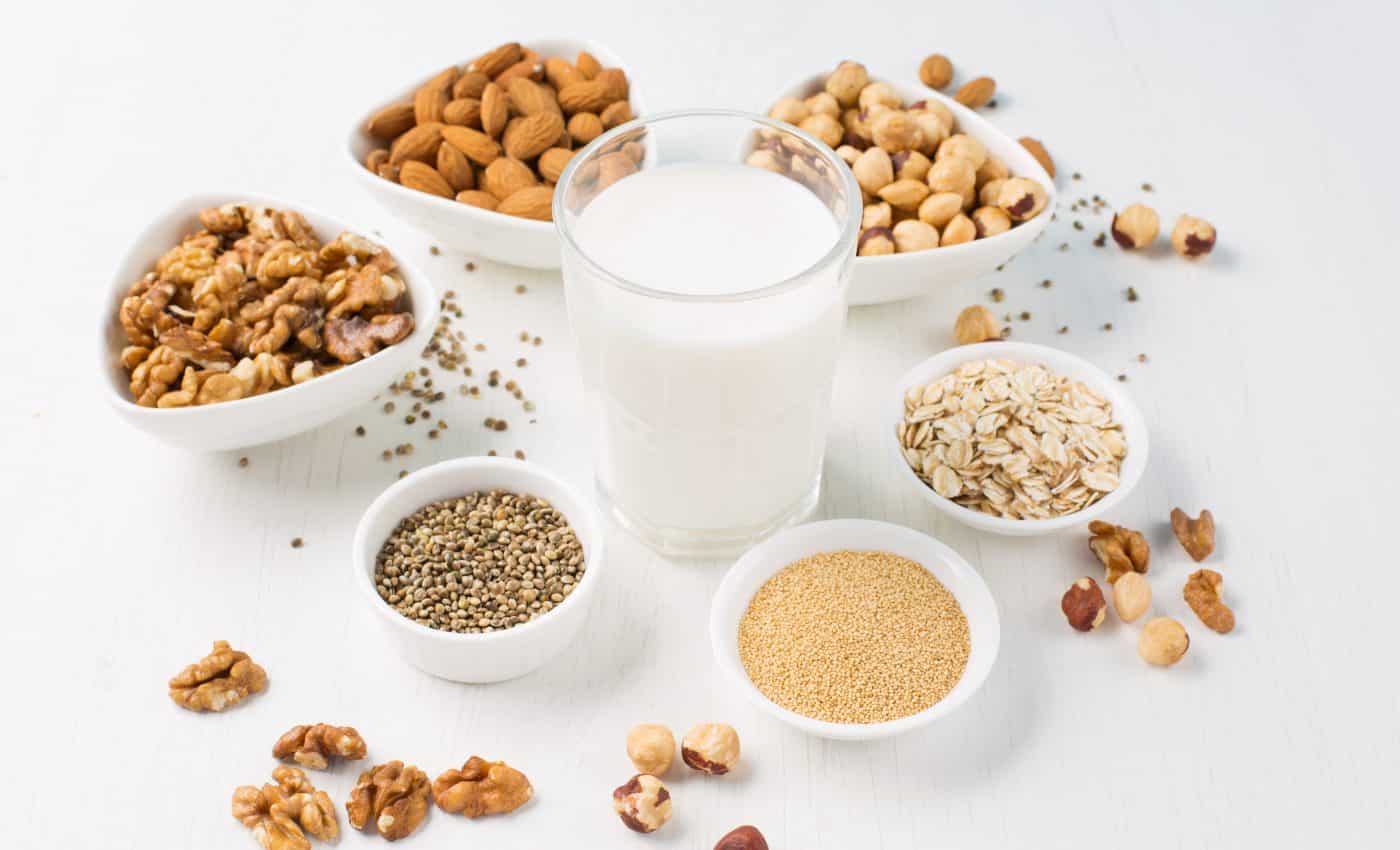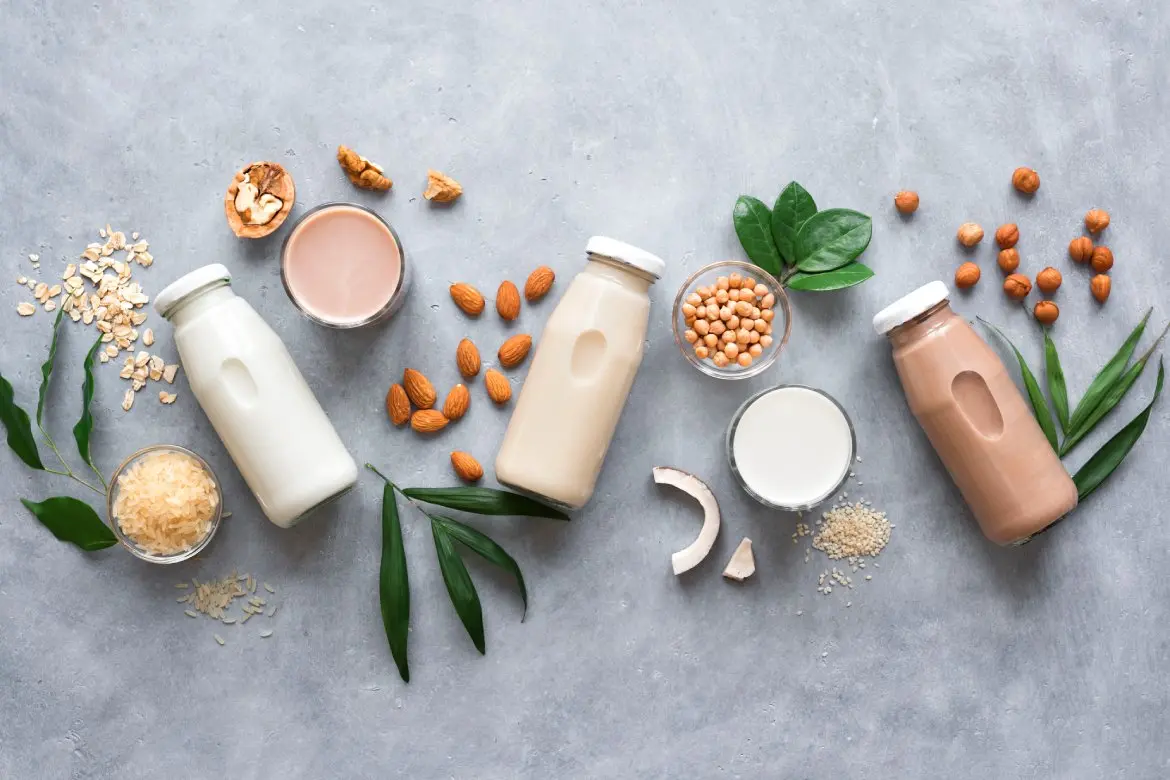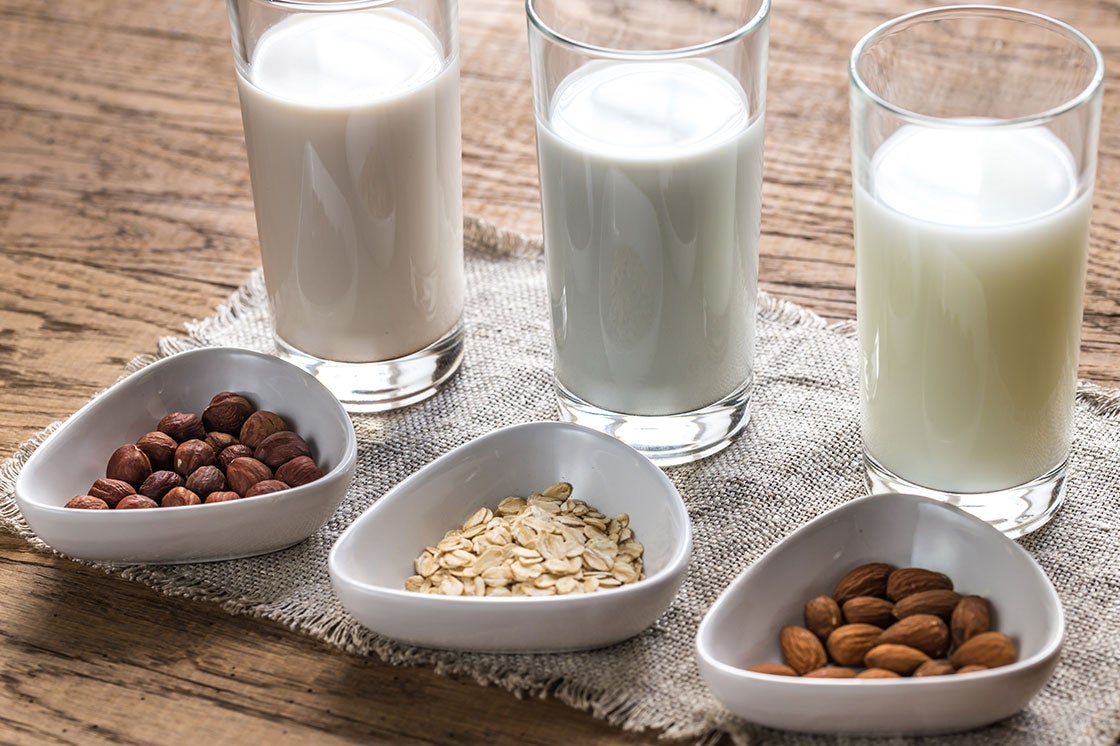With an increasing shift towards sustainable and health-conscious choices, plant-based milk alternatives are quickly becoming popular among those seeking dairy-free options. Whether for dietary reasons, environmental concerns, or ethical preferences, these alternatives offer a wealth of benefits. This guide will explore the most common types of plant-based milks, their nutritional profiles, and tips for choosing the right one for your lifestyle.

Why Choose Plant-Based Milk Alternatives?
Many people turn to plant-based milk alternatives due to lactose intolerance, allergies, or a preference for vegan or eco-friendly options. Unlike cow’s milk, plant-based milks have no cholesterol, are typically lower in calories, and often come fortified with essential nutrients like calcium, vitamin D, and B12. Additionally, they often have a reduced environmental footprint, making them an appealing choice for environmentally-conscious consumers.

Popular Types of Plant-Based Milks
- Almond Milk
- Taste and Texture: Almond milk has a slightly nutty flavor and a light, watery consistency.
- Nutritional Profile: Almond milk is naturally low in calories but often lacks protein. It’s typically fortified with calcium and vitamin D.
- Best Uses: Ideal for smoothies, cereal, and baking. However, it may not be the best option for people with nut allergies.
- Soy Milk
- Taste and Texture: Known for its creamy texture, soy milk has a mild flavor that makes it a versatile substitute for cow’s milk.
- Nutritional Profile: Soy milk is protein-rich, containing about the same amount of protein as cow’s milk. It’s also fortified with calcium and vitamins.
- Best Uses: Great for coffee, baking, and cooking, as it curdles less than other plant-based options.
- Oat Milk
- Taste and Texture: Oat milk has a creamy consistency and a slightly sweet, oat-like flavor.
- Nutritional Profile: Oat milk is higher in carbohydrates and fiber, making it more filling. It’s often fortified with B vitamins, iron, and calcium.
- Best Uses: Oat milk is an excellent option for lattes, cereals, and creamy sauces due to its texture and taste.
- Coconut Milk
- Taste and Texture: Coconut milk has a distinct coconut flavor and a thicker consistency.
- Nutritional Profile: While rich in saturated fats, coconut milk is lower in protein and carbohydrates. Many store-bought versions are fortified with vitamins.
- Best Uses: Perfect for curries, smoothies, and tropical-flavored recipes, but may be too overpowering for coffee or tea.
- Rice Milk
- Taste and Texture: Rice milk is one of the most hypoallergenic options and has a thin, watery consistency with a naturally sweet taste.
- Nutritional Profile: Rice milk is lower in protein and fat, primarily consisting of carbohydrates. It is usually fortified with calcium and vitamins.
- Best Uses: A suitable choice for people with nut and soy allergies. It’s best used in light cereals or as a simple beverage.
- Cashew Milk
- Taste and Texture: With a creamy texture and subtle nutty flavor, cashew milk is rich and smooth.
- Nutritional Profile: Cashew milk is low in calories and protein but high in healthy fats. Like almond milk, it is often fortified with essential nutrients.
- Best Uses: Ideal for creamy recipes, soups, and desserts. Cashew milk adds a smooth texture to drinks and meals.
Comparing Nutritional Benefits of Plant-Based Milks
Each plant-based milk alternative offers unique nutritional benefits. Here’s a quick comparison:
- High Protein: Soy milk is the best choice for those seeking a protein-rich dairy alternative, providing roughly 7–9 grams of protein per serving.
- Low Calorie: Almond milk is typically the lowest in calories, especially the unsweetened varieties.
- Fiber Content: Oat milk is high in fiber, which can aid in digestion and provide a sense of fullness.
- Healthy Fats: Cashew and coconut milks are richer in fats, making them suitable for creamy recipes and indulgent flavors.

Read More :
Top Plant-Based Foods to Avoid: A Guide to Healthier Choices on a Plant-Based Diet
Which Plant-Based Foods Are High in Protein? A Complete Guide
Which Plant-Based Foods Are Highest in Calcium? Discover the Best Sources
Are Plant-Based Foods Good for You? Uncover the Health Benefits and Facts
Embracing a Plant-Based Foods Diet: Your Path to Better Health and Wellness
How to Choose the Right Plant-Based Milk Alternative
Choosing the best plant-based milk alternative depends on your dietary needs, taste preferences, and cooking habits:
- For Coffee Lovers: Oat and soy milk froth well, making them excellent choices for lattes and cappuccinos.
- For High-Protein Diets: Soy milk is the closest match to cow’s milk in terms of protein content.
- For Smoothies and Desserts: Almond, coconut, and cashew milk add a creamy texture without overpowering flavors.
- For Cooking and Baking: Soy, oat, and cashew milks perform well in cooking and baking, while rice milk may be too thin for some recipes.
Environmental Impact of Plant-Based Milks
Plant-based milks generally have a lower environmental impact than dairy. Almond milk requires significant water, while soy and oat milks have lower water footprints. Rice milk produces more greenhouse gases, but overall, plant-based milks use fewer resources than dairy, contributing to reduced carbon emissions and deforestation rates. Opting for sustainable brands or local products can further reduce the environmental impact.
Making Plant-Based Milk at Home
Homemade plant-based milk alternatives are increasingly popular for those who want control over ingredients and freshness. Here’s a basic method:

- Soak 1 cup of nuts, oats, or rice in water overnight.
- Blend with 4 cups of water until smooth.
- Strain through a nut milk bag or cheesecloth for a smoother consistency.
- Flavor with a pinch of salt, vanilla, or sweetener if desired.
Homemade milks can be stored in the refrigerator for up to 4 days, allowing you to enjoy fresh, preservative-free milk.
Conclusion
With advancements in food technology and a rise in conscious consumerism, plant-based milk alternatives are evolving in taste, nutrition, and availability. From enhancing sustainability to accommodating diverse dietary needs, these alternatives are a versatile and health-friendly choice. Whether for daily drinking, cooking, or adding a twist to your coffee, there’s a plant-based milk to suit every preference.







